24 December 1945: Hazrat Haji Mian Muhammad Musara of Lahore, a companion of Hazrat Mirza Ghulam Ahmadas, passed away. He performed bai‘at in 1902. He was born in 1872. Once, the Promised Messiahas visited his place of business in Lahore when he was touring the city with family members. Hazrat Mian Musa Sahibra was also instrumental when the railway track was being installed in Qadian. (Tarikh-e-Ahmadiyyat, Vol. 9, p. 543)
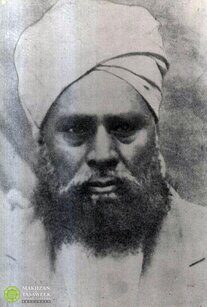
24 December 1947: The authorities allotted Ratan Bagh in Lahore to Jamaat members after the partition. Hazrat Musleh-e-Maudra instructed for all the belongings that were found in Ratan Bagh to be counted and safely stored. On this date, the owners came back seeking the possessions they had lost during the partition. Huzoorra safely returned each item to them.
Some people were not in favour of returning such goods as Muslims were arriving in the newly formed Pakistan completely empty-handed. Others were of the view that Muslims should utilise the money, ornaments and goods they stumbled upon; however, Hazrat Musleh-e-Maudra decided that the goods should be returned to Gobind Sahai, grandson of Diwan Bahadr Diwan, who came to get his and his family’s personal belongings.
Touched by Huzoor’sra act, Gobind Sahai wrote:
“Gobind Sahai, grandson of Diwan Bahadr Diwan, have [sic] found the true spirit of honesty in the Qadian Community. The head of his [sic] Community is at present staying at our banglow [sic] Rattan Bagh Lahore. He has given me all the household things, specialy [sic] some ornaments which were left by our family members. Some the of money which was lying in our almari [wardrobe] was also given to me by Mirza Bashir ud Din head of the Ahmadiyya Community personally. I am really very much pleased by the treatment which this community has shown me.
“Sd: Gobind Sahai Diwan
“Dated: 24-12-1947” (Tarikh-e-Ahmadiyyat, Vol. 10, p. 18)
25 December 1930: Sahibzada Mirza Sultan Ahmad, the eldest son of the Promised Messiahas, took bai‘at at the hand of Hazrat Musleh-e-Maudra. Though he did not perform bai‘at during the life of the Promised Messiahas, he would passionately defend the Promised Messiahas.
Almost two years before his formal allegiance, in October 1928, he published this statement in Al Fazl:
“I believe in all the claims of Hazrat Mirza Sahib and I am certain that he was true in his claim, was righteous and was commissioned by God Almighty. I am an Ahmadi by heart.”
In December 1930, Sahibzada Mirza Sultan Ahmad Sahib was bedridden in his final illness. During this time, Huzoorra said the words of allegiance in a low voice and then a silent prayer was held.
Hazrat Khalifatul Masih IIra, while mentioning the allegiance of Sahibzada Mirza Sultan Ahmad Sahib, said that one of the main objections raised by opponents regarding the Promised Messiahas was that his relatives, especially his son, Sahibzada Mirza Sultan Ahmad Sahib, rejected him. Huzoorra said that he prayed with great fervour to God Almighty for him, not because opponents raised allegations, but because he was the son of the Promised Messiahas and thus, the allegation fell directly on Hazrat Ahmadas.
Huzoorra said that it was generally considered that a person who did not swear allegiance in the time of his father, nor in the time of Hazrat Khalifatul Masih Ira (a person who was loved by the Promised Messiahas) it could not be expected for such a person to swear allegiance to his younger brother at any time, but how Mighty and Great was Allah who said to the Promised Messiahas, long ago:
“We shall leave no trace of anything the allusion to which might reflect adversely upon your honour.” (Tarikh-e-Ahmadiyyat, Vol. 5, p. 237)
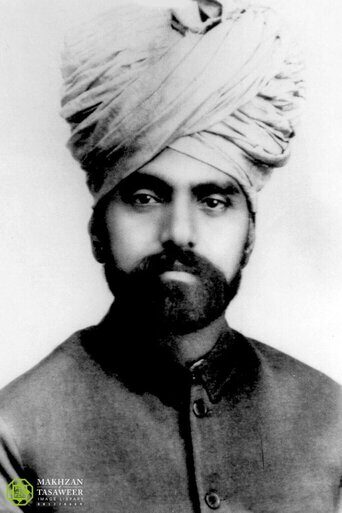
25 December 1944: Hazrat Munshi Muhammad Hussainra passed away. This fortunate companion of the Promised Messiahas had the honour of scribing fresh revelations of the Promised Messiahas. Additionally, he had the opportunity to serve as a scribe for Al Hakam, Badr and Al Fazl for a long period. (Tarikh-e-Ahmadiyyat, Vol. 9, p. 222)
26 December 1931: The Muslim League convened its annual session in Delhi, which was presided over by Hazrat Sir Chaudhry Muhammad Zafrulla Khanra. He raised the issue of Muslim rights in India during the course of his presidential keynote address.
Muslim scholars belonging to Majlis-e-Ahrar and Congress tried to spoil this important meeting and did their best to discredit Hazrat Sir Chaudhry Muhammad Zafrulla Khanra just because he was an Ahmadi. Meanwhile, the Muslim press highly acknowledged the salient points he mentioned in his keynote address and appreciated it immensely. (Tarikh-e-Ahmadiyyat, Vol. 5, p. 307)
26 December 1961: On this date, Hazrat Mirza Sharif Ahmadra, son of Hazrat Ahmadas, passed away. He was born on 24 May 1895. He is the paternal grandfather of Hazrat Mirza Masroor Ahmadaa, Khalifatul Masih V.
For further details, see www.ahmadipedia.org/content/personality/167
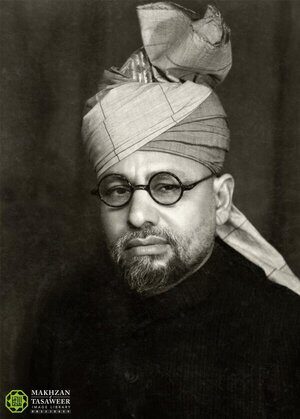
27 December 1941: Hazrat Chaudhry Mahboob Alam Baqapurira, companion of the Promised Messiahas, passed away. He pledged allegiance to Hazrat Ahmadas in 1906. He was the younger brother of the famous orator and missionary, Maulana Muhammad Ibrahim Sahib Baqapuri. (Tarikh-e-Ahmadiyyat, Vol. 8, p. 279)
27 December 1947: Quaid-i-Azam, Muhammad Ali Jinnah, Governor-General of Pakistan, appointed Hazrat Chaudhry Sir Zafrulla Khanra as the first foreign minister of the newly formed country. And he held this important position until 24 October 1954.
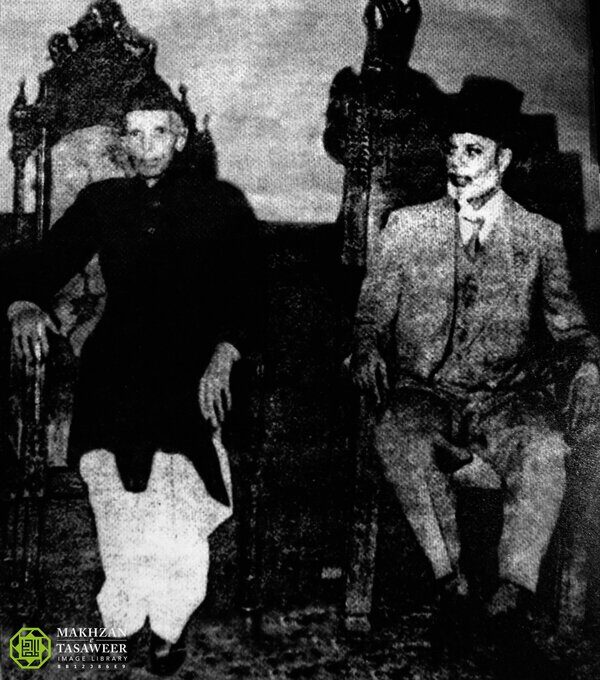
27 December 1960: The chief justice of India was given Ahmadiyya literature when he visited Tarapur in Palghar district in the Indian state of Maharashtra.
Maulvi Abdur Rahman Fani Sahib, a local missionary of the Jamaat, presented an address on behalf of the Jamaat. (Tarikh-e-Ahmadiyyat, Vol. 21, p. 9)
28 December 1928: An All Party’s Convention was proposed and held to discuss the Nehru Report. Hazrat Mufti Muhammad Sadiqra represented the Jamaat, as he was serving as the nazir (director) of external affairs. On behalf of the Muslim League, Quaid-i-Azam Muhammad Ali Jinnah had brought a delegation of 22 eminent Muslim League representatives. (Tarikh-e-Ahmadiyyat, Vol, 5, p. 78)
28 December 1928: Jamaat-e-Ahmadiyya Australia convened its jalsa, which was the first-ever Jamaat gathering in the eastern world outside India. Hazrat Sufi Muhammad Hassan Musa Khanra, the pioneering Ahmadi of Australia, narrated the claims of the Promised Messiahas. By the grace of Allah, this proved to have a very great impact on all those present. (Tarikh-e-Ahmadiyyat, Vol. 5, p. 100)
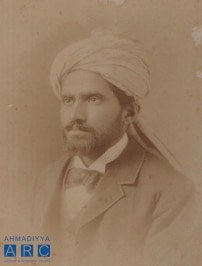
28 December 1956: Hazrat Sardar Sher Bahadur Qaisaranira passed away. He was a companion of the Promised Messiahas and was particularly prayerful. Hazrat Sardar Sahibra was born around 1876 and held Shiite views before accepting Ahmadiyyat.
He was a member of the Qaisarani chief family. He first became a subedar (a rank of junior commissioned officer in the Indian Army) in the army and then retired after being promoted to the rank of risaldar (a military rank). (Tarikh-e-Ahmadiyyat, Vol. 19, p. 321)
29 December 1909: Upon the instructions of Hazrat Khalifatul Masih Ira, a series of lectures was arranged in Lahore, commencing on this date, for the next four days.
Christians had started a series of lectures in a college in Lahore, in response to which a series of Islamic lectures was started on the instruction of Hazrat Khalifatul Masih Ira. Aside from other speakers, Hazrat Sahibzada Mirza Bashiruddin Mahmud Ahmadra delivered a lecture on the subject of salvation. (Tarikh-e-Ahmadiyyat, Vol. 3, p. 299)
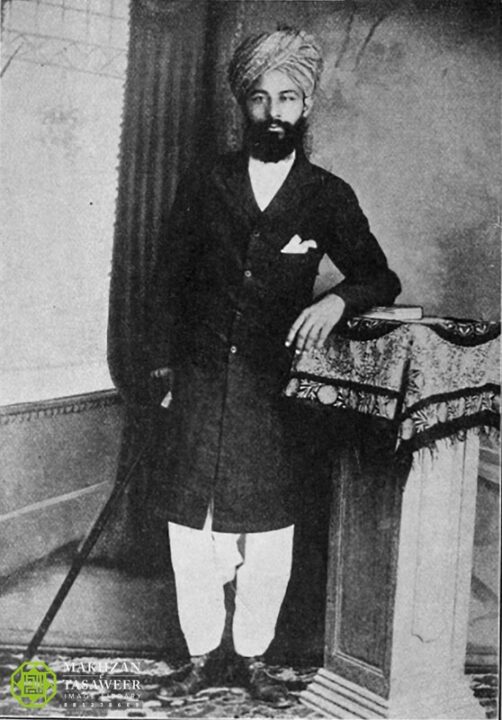
29 December 1944: In response to the unpleasant behaviour and foul language used by opponents of the Jamaat during the course of Jalsa Salana, Hazrat Musleh-e-Maudra instructed Jamaat members to recite the following prayer during Isha in its final rak‘ah:
اللَّهُمَّ إنَّا نَجْعَلُكَ فِيْ نُحُوْرِهِمْ، وَنَعُوْذُ بِكَ مِنْ شُرُوْرِهِمْ
“O Allah, we take You as a shield against whatever is in their [the enemy’s] heart. We seek protection against every evil of theirs and its dangerous effects.”
This practice continued for 40 days into the new year. (Tarikh-e-Ahmadiyyat, Vol. 9, p. 212)
30 December 1921: Hazrat Musleh-e-Maudra, while delivering the Friday Sermon in Masjid Noor, said that sha‘airullah (signs of Allah) should always be honoured and respected. Huzoorra said:
“Allah the Exalted has designated some Signs. Their honour and respect is of utmost importance. This is so because mischief and evil always arise from [seemingly] trivial matters and progress slowly. Therefore, until the very means of its formation are closed, it cannot be stopped.” (Friday Sermon, 30 December 1921)

